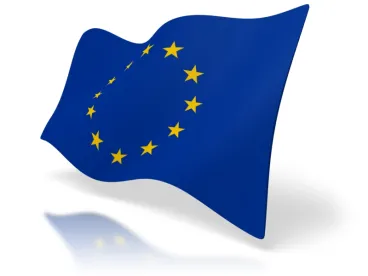The European Securities and Markets Authority has requested clarity on the definition to ensure consistent application across member states.
Following industry lobbying, the European Securities and Markets Authority (ESMA) wrote to the European Commission (the Commission) on 14 February, asking the Commission to clarify the definition of “derivatives” under the European Market Infrastructure Regulation (EMIR).[1]
ESMA’s main concern in asking for the clarification is that the definition of “derivatives” is not harmonised across the European Union (EU), which may have a “significant detrimental effect” on the consistent application of EMIR. EMIR’s definition of “derivatives” cross-refers to the list of financial instruments enumerated in Annex I to the Markets in Financial Instruments Directive (MiFID).[2]
The source of the harmonisation problem is the use of a defined term in an EU regulation (which takes direct effect throughout the EU) when that defined term cross-refers to a definition set out in an EU directive (which relies on each member state of the EU to implement it in their local law as the state sees fit).
The different transpositions of MiFID into local law across member states mean that there is no single, commonly adopted definition of “derivative” in the EU, thus preventing the convergent application of EMIR EU-wide (as well as other directives that rely on MiFID definitions of financial instruments). This is contrary to the purpose behind the use of an EU regulation.
Different definitions of “derivative” may result in the inconsistent application of EMIR, which has a primary objective of regulating derivatives transactions. ESMA notes that this is particularly the case for foreign exchange (FX) forwards and physically settled commodity forwards.
Different classifications of what constitutes a derivative will create an unlevel playing field for market participants in the following ways:
-
The trade reporting of certain transactions in one member state and not in others.
-
With reference to the calculation of the clearing threshold for non-financial counterparties (NFCs) from which derive NFCs’ obligations under EMIR—certain financial instruments may be included in the calculation in some member states and excluded in other member states.
-
A central counterparty established in one member state may face higher margin requirements than another central counterparty in a different member state, given that, under EMIR, margin requirements are higher for over-the-counter derivatives than for other financial instruments.
Furthermore, if different classifications of what constitutes a “derivative” are adopted, neither the clearing obligation nor the risk mitigation obligations would apply uniformly EU-wide, contravening EMIR’s objectives.
In order to achieve consistent application of EMIR, ESMA considers it is essential to clarify the references to the MiFID definitions in the context of EMIR and has invited the Commission to urgently adopt a legislative measure that will, in particular, clarify the definition of the following:
-
Currency derivatives in relation to (a) the frontier between spot and forward and (b) their conclusion for commercial purposes
-
Commodity forwards that can be physically settled
Pending such clarity, market participants find themselves awkwardly placed—unsure whether certain transactions are subject to EMIR and potentially subject to enforcement action by regulators for failing to comply with EMIR. To avoid the inconsistent application of EMIR across the EU, ESMA has helpfully published its understanding that—until the Commission provides clarification, and to the extent permitted under national law—national regulators will not implement the relevant provisions of EMIR for contracts that are not clearly identified as derivatives across the EU. This includes, in particular, FX forwards with a settlement date up to seven days, FX forwards concluded for commercial purposes, and physically settled commodity forwards.
[1]. For more information on EMIR, see the following LawFlashes: (1) “Implementing Measures of European Market Infrastructure Regulation Take Effect”, available here; (2) “Obligations Under European Market Infrastructure Regulation Imminent”, available here; and (3) “Update on the European Market Infrastructure Regulation”, available here.
[2]. Under Article 2(5) of EMIR, “derivative” or “derivative contract” means a financial instrument as set out in points (4) to (10) of section C of Annex I to MiFID.



 />i
/>i

